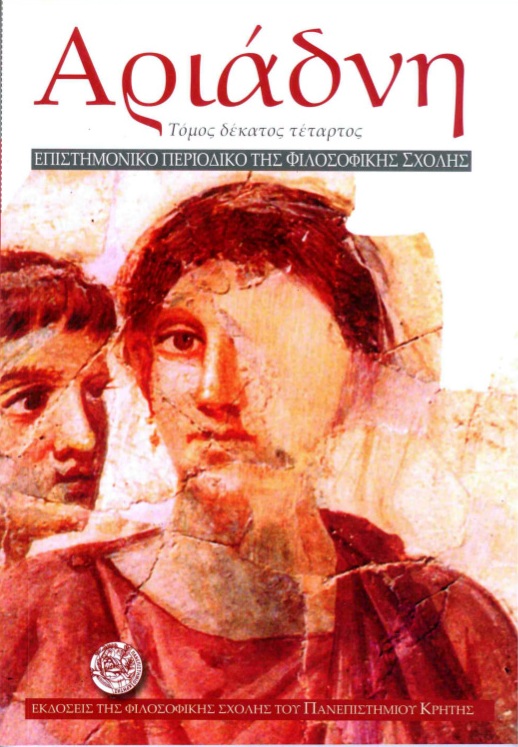Th e feet of the Curse (Ará): ritual language in Sophocles’ Oedipus Tyrannus
DOI:
https://doi.org/10.26248/ariadne.v14i0.410Abstract
IN THIS ESSAY we examine Oedipus’ condemnatory speech in Sophocles’ Oedipus Tyrannus, not in respect of its political ramifi cations, but from the (rather neglected) point of view of its ritual structure and function. More specifically, we try to follow the ‘steps’ of the Curse, detecting how Oedipus’ imprecation is related to its dramatic reality. As it is argued, the peculiar relationship between Οἰδίπους and δεινόπους Ἀρά is gradually developed through a tragic linguistic game. The Delphic words instigate Oedipus to imprecate curses upon the murderer of Laius and thus to “release” Ἀρά into the dramatic world. However, no matter how hard he tries to distance himself from the unknown murderer, the way his speech is structured does exactly the opposite: it identifies him with the killer. The ambiguity of his nature, as expressed in his being both subject and object of his condemnation, is further impressed upon his very name, Οἰδίπους, ‘playing’ ingeniously with the basic characteristic of Ἀρά, i.e. δεινόπους (repeatedly called so in the play). Their linguistic correlation means at the same time –as the play seems to suggest– that the hero is not only the subject or the object of his curse; he is the Curse itself, the Curse of himself. Only when he opens his internal eyes, he realises that he tragically substantiates his own condemnatory words.
Downloads
Published
How to Cite
Issue
Section
License
Authors retain copyright and grant the journal right of first publication with the work simultaneously licensed under a Creative Commons Attribution-NonCommercial-ShareAlike 4.0 International License that allows others free use of the work for non-commercial purposes as long as the author/s and the journal are attributed properly and the new creations are licensed under identical terms (Creative Commons Attribution-NonCommercial-ShareAlike 4.0 International License).


